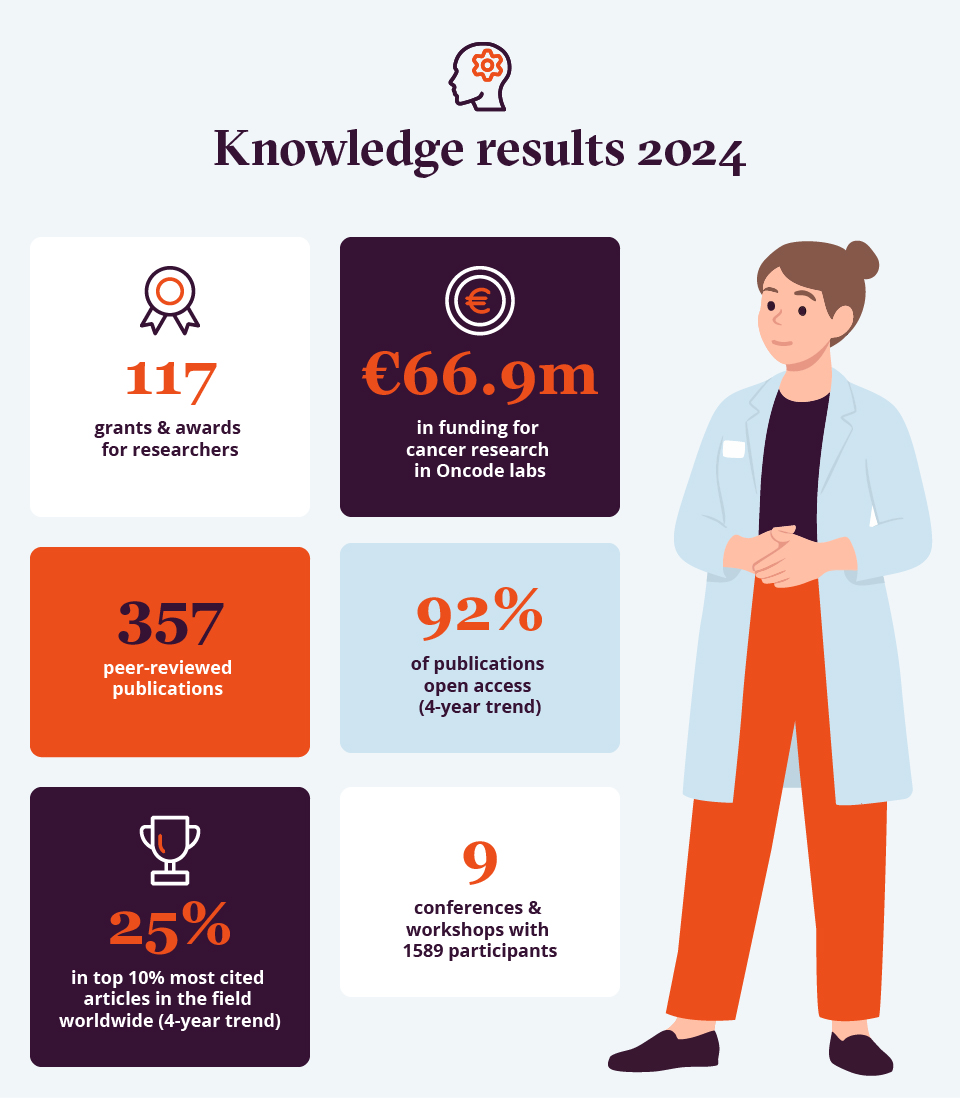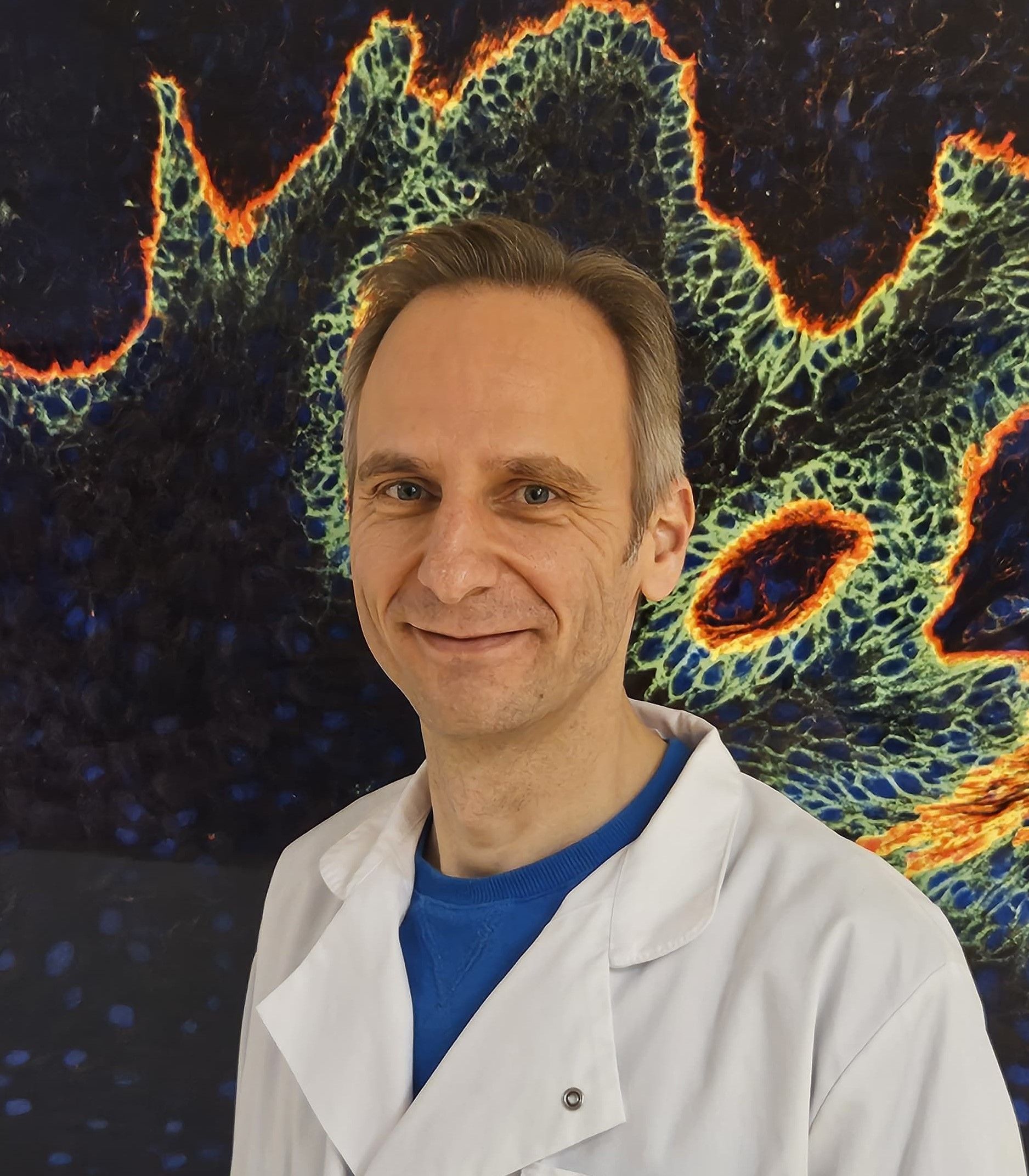Where We Stand Today
Oncode Institute researchers regularly publish in top scientific journals, contribute to international guidelines and develop new technologies with global impact. By investing in science, we lay the groundwork for a deeper understanding of cancer, which translates into better care for patients. Because the more we know, the more we can achieve. Years of strategic investment in research excellence and collaboration are delivering measurable results. New partnerships have formed, and knowledge exchange among researchers is accelerating.
According to the latest CWTS Leiden Ranking, 25% of publications by Oncode Investigators rank among the top 10% most cited oncology papers worldwide (CWTS Leiden Ranking 2025 - based on 2020–2023 data) - demonstrating the global reach and influence of our research.
These achievements have attracted significant recognition through prestigious grants and awards for our Oncode Investigators.

Impact Story
The Menstrual Cycle and Chemotherapy Effectiveness
In mice, the menstrual cycle influences the effectiveness of chemotherapy
(Research by Jacco van Rheenen and colleagues)
Although hormonal fluctuations are often overlooked in medical research, findings from Oncode Investigator Jacco van Rheenen and his colleagues show that the effectiveness of chemotherapy in mice depends on the phase of the menstrual cycle. This raises critical questions: Could better-timed chemotherapy improve outcomes? Does this apply to humans, and how can it be translated into practice? The group’s findings highlight the need for further research into chemotherapy and the menstrual cycle.
By timing the first round of chemotherapy to coincide with the most favourable phase in the menstrual cycle, mice responded better to treatment. Initial analysis of the NKI database and blood samples from a small group of breast cancer patients suggest this may be relevant to humans too. However, as Van Rheenen emphasises, further clinical studies are essential to confirm this.
The results of this fundamental research laid the foundation for an ongoing clinical study, supported by the Oncode Clinical Proof-of-Concept (CPoC) programme. In addition to scientific evidence, patient experience plays a vital role: close collaboration with patient representatives enables the development of realistic and effective treatment strategies.
‘This research provides insights into how women respond to cancer treatments. I hope that in five years we will better understand how the menstrual cycle affects chemotherapy,’
says Sabine Linn, internist-oncologist at the Netherlands Cancer Institute.
‘If the study confirms the hypothesis, the impact could be significant - not by introducing new drugs, but simply by adjusting the timing of treatment.’
If confirmed, this approach could lead to a simple yet transformative change in cancer care. This story highlights the importance of fundamental research, and the unique role Oncode Institute plays in funding it. By integrating insights from both laboratory and patient experience, we can personalise treatments and make care more effective.

‘The Oncode Institute’s approach is at the heart of this research,’ says Van Rheenen. ‘Their Base Research Funding enables us to answer fundamental questions without applying for separate funds. It allows us to make discoveries like these, and explore them further.’
Voices from Our Community
Anastassis Perrakis, Oncode Investigator:
‘Oncode Institute plays an essential role in enabling discoveries in human biology. Our collaborations with Thijn Brummelkamp, who discovered a new molecular complex critical to gene activation, and Geert Kops, who is investigating chromosome division, are only possible thanks to the support and vision of Oncode Institute. Oncode Institute not only provides funding, but also helps build the scientific network needed to make pioneering research a success.’
Hugo Snippert, Oncode Investigator:
‘The financial flexibility offered by Oncode Institute through their Base Research Funding is a cornerstone of my team’s success. It allows us to take on high-risk projects without delay. This support acts as a genuine multiplier - helping us secure additional funding to expand our work even further while attracting and retaining top talent.’
Madelon Maurice, Oncode Investigator:
‘Through Oncode Institute, I have established a valuable collaboration with Michiel Vermeulen and Daniela Thommen to study how SureTACs - engineered molecules that help the immune system recognise and attack cancer cells - can be used to break down immune checkpoint proteins in colon cancer to develop new treatments. This demonstrates how Oncode Institute’s network and expertise enable pioneering collaborations in cancer research.’